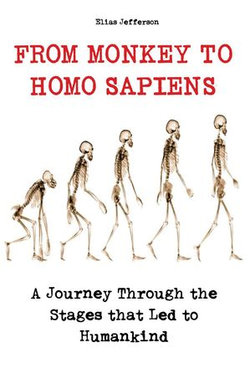
-
Books
-
Education
-
eBooks
-
Audio Books
-
Film & TV
-
Calendars, Diaries & Stationery
-
Giftshop

The origin of modern humans has probably been the most debated issue in evolutionary biology over the last few decades.
Modern humans (Homo sapiens), the species we are, means 'wise man' in Latin. Our species is the only surviving species of the genusHomobut where we came from, has been a topic of… more
The origin of modern humans has probably been the most debated issue in evolutionary biology over the last few decades.
Modern humans (Homo sapiens), the species we are, means 'wise man' in Latin. Our species is the only surviving species of the genusHomobut where we came from, has been a topic of much debate. Modern humans originated in Africa within the past 200,000 years. They evolved from their most likely ancestor, Homo erectus, which means 'upright man' in Latin. Homo Erectus is an extinct species of human that lived between 1.9 million and 135,000 years ago.
At some point in its evolutionary history, our species Homo sapiens ceased to be a nonlinguistic, non-symbolic organism, living in the world as presented by Nature. Instead, they began to exist in a world that it reconstructs in its mind. Most scientists since Darwin have been content to explain this extraordinary transformation in human consciousness by the operation of natural selection. However, the human fossil and archaeological records indicate that modern human symbolic consciousness is not the culmination of the long trend that natural selection would predict. Instead, it shows that significant change in the human past has been episodic and rare. As can be determined from the archaeological record, the passage from non-symbolic to symbolic cognition is a recent and unprecedented event. So contemporary, indeed, that it significantly postdates the acquisition of modern human anatomy as expressed in skeletal structure. The biological (neural) capacity underwriting the radically new behavioral model arose as an incidental exaptation in the same process that produced the new skeletal structure of Homo sapiens. But that it lay unexpressed until it was "discovered" using a cultural innovation, plausibly the invention of language.
lessThis item is delivered digitally
Thanks for reviewing From Monkey to Homo Sapiens A Journey Through the Stages that Led to Humankind. We will process your review. Accepted reviews will be posted within 3-7 business days.
Be the first to know, stay up to date with what's trending and get staff picks in your inbox with our newsletter


Public: Allow anyone to view or shop your List
Private: No one can view or shop your List
We have kept your A&R details for your new Angus & Robertson account
We also noticed that you have previously shopped at Bookworld. Would you like us to keep your Bookworld order history?
We also noticed that you have an account on Bookworld. Would you like us to keep your Bookworld details, including delivery addresses, order history and citizenship information?
Share This eBook